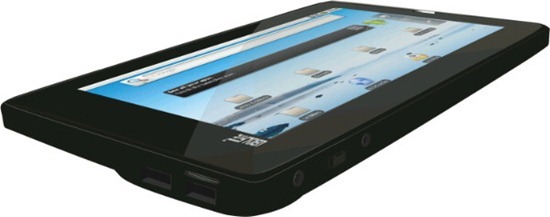RTI Reveals Aakash Tablet Project Shut In March After Achieving 1 Lakh Target

The low-cost Aakash tablet project rolled out by Government and managed by IIT Bombay was shut down in March 2015 suggests a reply to an RTI query. The device often had problems such as low memory, the system gave up and had frequent freezes, and sound quality of the device was pretty poor too. The tablet did not support all formats, had a very low battery life and had inability to install free software available online were also cited by users.
Several complaints and troubleshoots were reported in the past with regard to the functioning of the device, which were procured from Canada-based Datawind company.
However, despite all odds, the project was being carried forward to provide viable education for students around the country; conversely, there was absence of training and support infrastructure to the students using the tablets in the rural areas.
The company DataWind had opened online ordering for Aakash on 16 December 2011, at ?2500 and its upgraded version Ubislate 7+ was available for pre-order at ?2999. In just three odd days, the first phase had been sold out. The RTI reply stated that the project was closed down after the target of equipping one-lakh tablets was achieved. Other than procuring one lakh devices, the other targets including – its sample testing in labs and establishment of over 300 Aakash centres which were engineering colleges across the country – were also achieved, the RTI report listed.
“The Aakash project at IIT Bombay was closed on March 31, 2015, after successfully completing all targets. Specifications for future upgraded version have been submitted to the government. IIT Bombay is not in the knowledge of future plans,” as stated by IIT Bombay official in the RTI. Initially, IIT Rajasthan was entrusted with the project, but IIT Rajasthan returned it to Ministry of Human Resource Development. Later, the project was entrusted to IIT Bombay and since then the institute had been overseeing the Aakash project. The issue was also raised in 2014 Lok sabha election as an amount of ?47.72 crores was approved for the project.
The aspiration to create a “Made in India” computer was first reflected in a prototype Simputer, followed by Kapil Sibal’s announcement of one One Laptop Per Child scheme for rural, underprivileged students. MHRD then showcased Aaskash, which was considerably less able than the previously shown prototype and was going to cost about twice as much. The once projected laptop computer evolved in a tablet computer and eventually shut down.
It is surprising to see how unceremoniously a project, which was aimed at technological advances for the ones who could not afford it financially, was shut down. No claims of the now said target were made at its launch.
